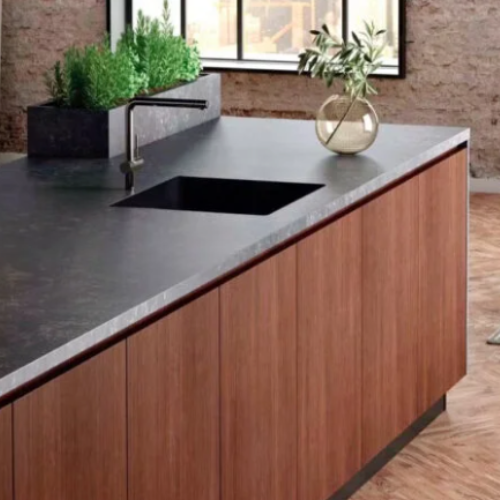
Study Highlights Ongoing Silica Hazards for Artificial Stone Countertop Fabricators
November 3, 2025
The Silent Suffering: Why Latino Workers with Silicosis Often Don’t Seek Help
November 17, 2025In a powerful move that echoes growing international concern, UK lawmakers are once again urging Parliament to consider a full ban on high-silica artificial stone. The renewed calls, presented during a recent hearing in Westminster, reflect mounting evidence that artificial stone—also referred to as engineered or manufactured stone—is directly linked to the rise of accelerated silicosis, a deadly and incurable lung disease.
Artificial stone is composed of at least 90% crystalline silica. When cut, ground, or polished, it releases nano-sized silica particles into the air. These particles are easily inhaled and embed deep into the lungs, causing irreversible scarring, breathing difficulties, and, in many cases, premature death. The remaining 10% of the material includes volatile organic compounds (VOCs), many of which are known toxins and carcinogens.
Australia Leads the Way with a Nationwide Ban
The UK’s renewed scrutiny follows Australia’s landmark decision to ban artificial stone nationwide in July 2024. The move came after a surge in silicosis cases among young workers, many of whom developed accelerated forms of the disease after only a few years (and for some, as short as a few months) of exposure. Australian health authorities concluded that no level of silica exposure is safe when working with artificial stone, and that the material itself is the root of the problem.
Australia’s decision has sparked global conversations about the future of artificial stone in construction and design in both commercial and residential applications. Health experts, labor organizations, and legal advocates are now urging other countries to follow suit.
The United States: Regulations Aren’t the Answer
In the United States, the Occupational Safety and Health Administration (OSHA) has implemented strict permissible exposure limits (PEL) for silica dust in fabrication facilities. However, even facilities that comply with these standards continue to report new cases of silicosis among artificial stone workers. Published, peer-reviewed studies have shown that respirators, ventilation systems, and wet-cutting techniques are not sufficient to eliminate exposure to harmful nano-sized silica particles.
Reports emphasize that silicosis from artificial stone is not a workplace compliance issue—it is a materials issue. The high concentration of silica in artificial stone slabs makes it inherently dangerous, and no economically feasible method exists to fully protect workers during fabrication.
Despite increased awareness, silicosis diagnoses continue to rise in the U.S., particularly among countertop fabricators and installers. Legal actions are underway in several states, and advocacy groups are pushing for a nationwide phase-out of artificial stone products.
UK Parliament: A Growing Sense of Urgency
During the Westminster hearing, representatives from the British Safety Council and the All-Party Parliamentary Group (APPG) on Respiratory Health presented compelling evidence that the fabrication of artificial stone slabs cannot be done safely. They cited Australia’s ban as a model and urged the UK to take similar action before more workers fall ill.
The hearing also highlighted the limitations of current workplace controls. Even with advanced ventilation systems and mandatory use of personal protective equipment, workers remain vulnerable. The nano-sized silica particles released during fabrication are too small to be effectively filtered, and even short-term exposure can lead to severe health consequences.
Global Momentum Toward Safer Alternatives
Beyond Australia and the UK, other countries are beginning to reevaluate the use of artificial stone. In Europe, several health agencies are conducting studies on silica exposure, and some manufacturers are exploring low-silica alternatives. In the U.S., legal and medical communities are increasingly aligned in their view that artificial stone should be banned entirely.
Natural stone options like granite and marble, which contain significantly lower levels of silica, are being reconsidered as safer alternatives. Additionally, some companies are developing new composite materials with reduced silica content and improved safety profiles.
Brayton Purcell LLP: Supporting Those Affected
Brayton Purcell LLP has long been a legal authority in occupational disease litigation, including cases involving artificial stone silicosis. The firm continues to monitor international developments and advocate for individuals affected by this preventable disease.
If you or a loved one has been diagnosed with silicosis after working with artificial stone, you may have legal options. Brayton Purcell LLP offers guidance and representation to help victims seek justice and compensation.
Visit https://www.braytonlaw.com/engineered-stone-silicosis-news or contact us directly to learn more about your rights.














